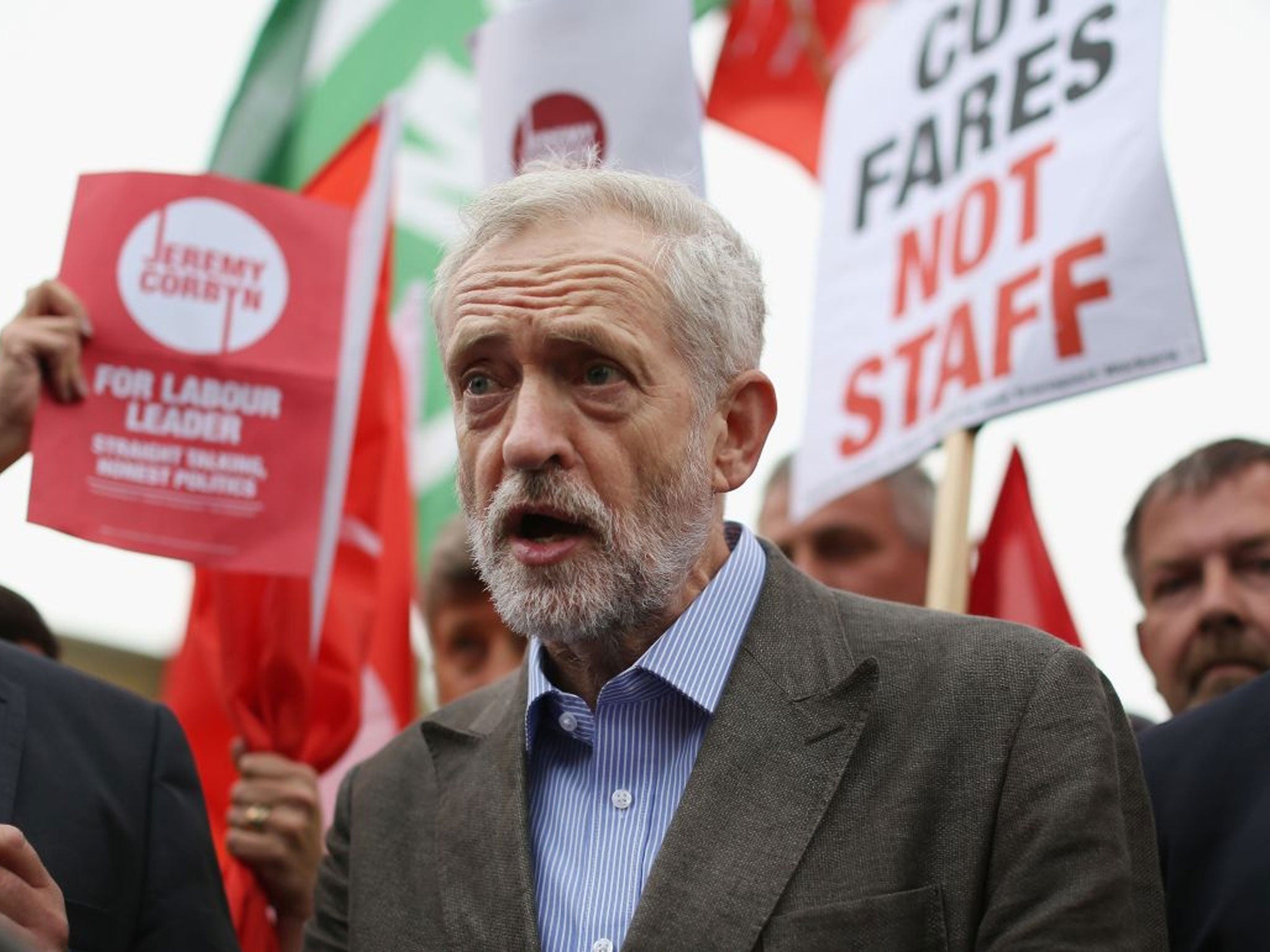Jeremy Corbyn risks returning Labour to the 'politburo politics' of the 1980s
In the party Corbyn's supporters will create, the executive decides the line and MPs do as they are told

Your support helps us to tell the story
From reproductive rights to climate change to Big Tech, The Independent is on the ground when the story is developing. Whether it's investigating the financials of Elon Musk's pro-Trump PAC or producing our latest documentary, 'The A Word', which shines a light on the American women fighting for reproductive rights, we know how important it is to parse out the facts from the messaging.
At such a critical moment in US history, we need reporters on the ground. Your donation allows us to keep sending journalists to speak to both sides of the story.
The Independent is trusted by Americans across the entire political spectrum. And unlike many other quality news outlets, we choose not to lock Americans out of our reporting and analysis with paywalls. We believe quality journalism should be available to everyone, paid for by those who can afford it.
Your support makes all the difference.The Labour party has become a more unpleasant place for its own members, or at least for the long-standing ones. Many shied away from attending their constituency Labour party nomination meeting for fear of being called a ‘Tory’.
The frontrunner for Labour's leadership election Jeremy Corbyn has thrown down the gauntlet with the parliamentary Labour party. In a not very thinly veiled threat, the Islington North MP says: 'We have to encourage the parliamentary Labour party to be part of that process and not to stand in the way of democratising the party and empowering the party members.'
His calls for loyalty and compliance will ring hollow from a man who voted against the last Labour government over 400 times. It is right that Labour members worked night and day to get MPs elected. Those MPs busted a gut too – many helping out considerably more seats than Jeremy himself.
But it is the insight into Corbyn's leadership style that is important.
What is revealing about Corbyn's remarks is the politburo politics that risks being at the top of the Labour party after 12 September. The leadership candidate and those core supporters on the hard-left ultimately believe that this Tory government – elected by 11.3 million people – is illegitimate. More importantly, that the 232 Labour MPs chosen by 9.3 million electors are simple voting-fodder for a party agenda decided by the collective will of 600,000 people who participate in a leadership election.
MPs are warned by the Campaign Group's candidate that they should 'not stand in the way of democratising the party'. The individual mandates of Labour MPs to represent the British public in the House of Commons should be put aside as Corbyn promised to 'absolutely use [his] supporters to push our agenda up to the parliamentary party'. The assumption is that de-selections will follow.
More on this:
Jeremy Corbyn: Four most common misconceptions about me – and the truth
Corbyn is the only candidate the public actually likes - Labour or otherwise
You may disagree with him, but Jeremy Corbyn has a key role in Labour's leadership race
It is indeed very important to involve more people in our politics. But it seems that the people behind Corbyn's campaign have a mixed view of 'real democracy'. They can ignore the outcome of 66 per cent of the public but Corbyn's potential elevation to leader of the opposition 'gives a very strong mandate for change within our society'.
Is this not putting the cart before the horse? It is the votes of the public, not the party, that gives leaders the permission to change society. Awkward as it might be, that requires an election to be won and more than 325 MPs. The votes of the party give Corbyn the right to stand at a dispatch box every Wednesday.
Corbyn's frontrunner status brings back memories of the Labour party in the 1980s. While the Militant Tendency and their fellow travellers were betraying the working classes of Liverpool and Coventry, Tony Benn was giving cover to many in the far-left seeking the de-selection of MPs. That is the heyday to which many on Corbyn's campaign seek to return.
In just 15 months, two Labour party conferences and one general secretary election, the party, as we know it, could be unrecognisable. Forget elections to the shadow cabinet, the remaining bloc votes at party conference could revive the holy grail for the hard-left: just as Tony Benn was chair of the home policy committee of the National Executive Committee until just before the 1983 general election.
An NEC with policy-making powers again reduces the shadow cabinet to a mere subcommittee and the chief whip to the role of messenger. The politburo decides the line, MPs are there to do as they are told.
Ironically, it is Corbyn who repeatedly voted with the Tories when Labour was in government. However, in the Labour party that Corbyn and his supporters would create, it is those who stayed loyal to the Labour manifestos of 1997 to 2010 that are the pale imitations of our political enemy.
John Woodcock MP is chair of Progress
Join our commenting forum
Join thought-provoking conversations, follow other Independent readers and see their replies
Comments